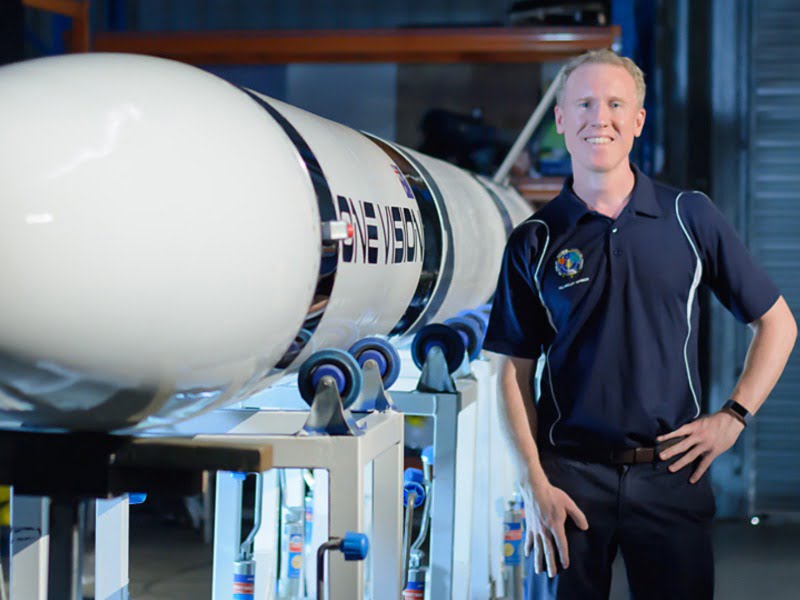Australia has taken a giant leap towards a sovereign space and satellite capability after the federal government inked an agreement with Queensland startup Gilmour Space Technologies.
Gilmour Space signed a strategic deal with Defence Science and Technology Group to work together on tech advances in areas such as rocket propulsion, materials and avionics with a goal of Gilmour launching its own satellites into orbit by 2022.
Gilmour is a hybrid rocket launch provider based in Queensland, building low-cost reliable and dedicated rockets for launching small satellites into low earth orbits.

It aims to become the first Australian company with local launch capabilities, and signed a statement of strategic intent and cooperation with the Australian Space Agency on this last year.
The Defence deal has been in the works for several years, Gilmour Space co-founder Adam Gilmour said. The two partners will meet regularly on different technologies and work to a timeline on technology development.
“In the last six months our design has started to narrow down to the core design – we’ve finished the preliminary designs and we can say what the remaining technology challenges we have ahead of us are,” Mr Gilmour told InnovationAus.
“[Defence] can help us with the challenges we have, and we can work on projects that suit them as well. They’re definitely interested in sovereign capability to launch satellites into space, on Australian launch vehicles, from Australia.”
Developing this local capability in satellites will be crucial to Australia in the future, Mr Gilmour said, with an increasing number of day-to-day activities now reliant on these technologies.
“It’s vital. The world is changing and the capability to knock out satellites in space is held by seven to 10 different countries and not all of them are our friends. It would be quite catastrophic if they all get knocked out,” he said.
“We heavily rely on satellites for our general way of life in Australia – like using maps, getting money out of an ATM, using PayWave, asking Siri about the weather or looking at fires and assessing floods, you name it.
“People don’t understand the importance space has on everyday life and if that gets taken away from us and we rely on a third party, that won’t be quick enough.
“If we have the ability to reconstitute satellites in space quickly that’ll be a game-changer for the Australian Defence Force. This is the first step in Australia having a sovereign capability in space from the government.”
A local capability in satellites would be a huge opportunity for defence in Australia, Defence Industry Minister Melissa Price said.
“Recent advancements in the capabilities of micro and nano-satellites, small satellites constellations and additive manufacturing presents a unique opportunity for Defence and Australian industry,” Ms Price said in a statement.
Gilmour Space has continued to test its rockets despite the COVID-19 pandemic. It plans to assemble and test the rockets fully next year before conducting its first launch in 2022.
“We’ve been really, really busy testing the technology from the tip of the vehicle to the bottom end. We’ve had a very busy testing schedule. Everything is going really well. There have been a couple of hiccups but nothing big and we’ve pushed through it,” Mr Gilmour said.
One of these hiccups was last year when a planned test of the company’s proprietary orbital-class hybrid rocket engine and mobile launch capability in north-west Queensland saw the rocket’s pressure regulator rupture, leading to damage to the tank and rocket. This was due to an “anomaly”, Mr Gilmour said.
While most of its workforce has been forced to work remotely, Gilmour Space has also been impacted by a reduction in venture capital funding due to the coronavirus crisis, with the company having to put a planned expansion on pause.
“Investors have told us that VC funding has totally gone risk-averse. It’ll be 12 to 18 months until we can raise money. That slow down on expansion is very frustrating. We’re at a point where we’re doing well on the technology, we want to expand and hire more people but we have to conserve cash,” Mr Gilmour said.
Do you know more? Contact James Riley via Email.

